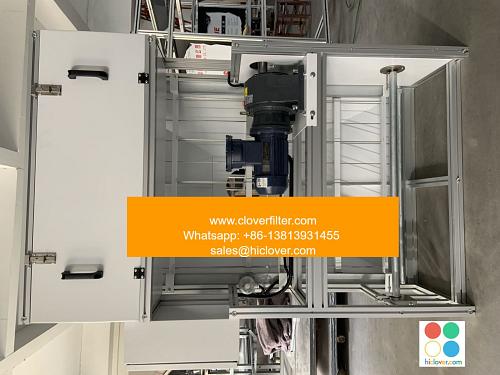Data-Driven AI-Powered Approaches for Maximizing Air Filter Customer Service KPIs

In the realm of air filter customer service, data-driven decision-making and AI-powered solutions are revolutionizing the way companies approach Key Performance Indicators (KPIs). By leveraging machine learning algorithms, natural language processing (NLP), and predictive analytics, businesses can optimize their customer service operations, leading to enhanced customer satisfaction, reduced churn rates, and increased revenue growth.
Application Areas for AI-Powered Air Filter Customer Service
Several application areas can benefit from data-driven AI-powered approaches, including:
1. **Predictive Maintenance**: AI-powered predictive maintenance can help identify potential issues with air filters before they become major problems, reducing downtime and increasing overall equipment effectiveness (OEE).
2. **Personalized Customer Support**: By analyzing customer behavior and preferences, AI-powered chatbots and virtual assistants can provide tailored support and recommendations to customers, enhancing their overall experience.
3. **Automated Issue Resolution**: Machine learning algorithms can be used to automate issue resolution, reducing the need for human intervention and minimizing response times.
4. **Sentiment Analysis**: NLP can be used to analyze customer sentiment and emotional intelligence, helping businesses to identify areas for improvement and optimize their customer service strategies.
5. **Supply Chain Optimization**: AI-powered predictive analytics can help optimize supply chain operations, ensuring that air filters are delivered to customers in a timely and efficient manner.
Benefits of Data-Driven AI-Powered Approaches
The benefits of data-driven AI-powered approaches for air filter customer service are numerous, including:
– **Improved Customer Satisfaction**: AI-powered solutions can help businesses to better understand customer needs and provide personalized support.
– **Increased Efficiency**: Automated processes and predictive maintenance can help reduce downtime and increase overall equipment effectiveness (OEE).
– **Enhanced Revenue Growth**: By optimizing customer service operations and reducing churn rates, businesses can experience increased revenue growth and improved competitiveness.
– **Better Decision-Making**: Data-driven decision-making can help businesses to make informed decisions and optimize their customer service strategies.
Real-World Examples of AI-Powered Air Filter Customer Service
Several companies are already leveraging data-driven AI-powered approaches to optimize their air filter customer service operations, including:
1. **HVAC manufacturers**: Using predictive maintenance and AI-powered chatbots to provide personalized support to customers and reduce downtime.
2. **Air filter suppliers**: Utilizing machine learning algorithms to optimize supply chain operations and ensure timely delivery of air filters to customers.
3. **Facilities management companies**: Implementing AI-powered predictive analytics to identify potential issues with air filters and reduce energy consumption.
Conclusion
In conclusion, data-driven AI-powered approaches are revolutionizing the way companies approach air filter customer service KPIs. By leveraging machine learning algorithms, NLP, and predictive analytics, businesses can optimize their customer service operations, leading to enhanced customer satisfaction, reduced churn rates, and increased revenue growth. As the use of AI-powered solutions continues to grow, it’s essential for companies to stay ahead of the curve and adopt data-driven approaches to remain competitive in the market. It seems like you’re ready to start a conversation or ask a question, but you haven’t specified a topic yet. What’s on your mind? Would you like to discuss something in particular or are you open to suggestions?

